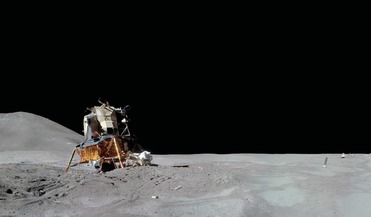 February 2019
Reflections on the future human condition
February 2019
Reflections on the future human condition
..., unless cities are built in interplanetary space (according to plans drawn up by Gerard O’Neill) or other planets are colonised, to provide territories for the surplus population. There is also a symbolic, philosophical reason for the transhumanist...
 April 2019
Protecting our lunar legacy
April 2019
Protecting our lunar legacy
... exploration one step forward. As we launch ourselves into our space future, to further explore and perhaps even colonise the Moon, we must do our utmost to safeguard the lunar heritage sites – our grandchildren will thank us. About...
 May 2019
Unlocking the full potential of Earth observation
May 2019
Unlocking the full potential of Earth observation
... potential, satellites are in critical need of a high-speed data connection. One day, humans could be an interplanetary species colonising the distant planets seen by the James Webb Space Telescope. Until that day, we will need to make...
 July 2019
Next steps in human space exploration
July 2019
Next steps in human space exploration
... all our opportunities to go further. Charlie Bolden I’m an eternal optimist but I’m not one of those who believes we will be colonising Mars or making settlements there in this century. But we will be well on the way with exploration, exploration...
 August 2019
The next us – our evolution in deep space
August 2019
The next us – our evolution in deep space
... minds to survive in an environment that does not have the same rules as we have on Earth. For example, as we start to colonise space, the rules for survival will require a different construct and decision framework. Each new environment...
 January 2020
Rule of law vital for humanity’s sustainability and survival
January 2020
Rule of law vital for humanity’s sustainability and survival
... for geopolitical conflicts, and such conflicts could, in many ways, be similar to the fiercely competing race for colonising countries in Asia, Africa and the Americas during the sixteenth to eighteenth centuries. If such conflicts result in wars...